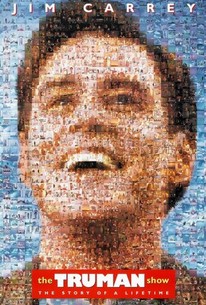One of the biggest things I’ve struggled with over my lifetime is fear. Over the past few days, I’ve examined this fear and I’ve discovered that it has many, many layers.
There is fear of making mistakes. Fear of doing it wrong. Fear of failure. Fear of getting into trouble. Fear of criticism, disapproval and rejection. Fear of my own feelings. Even fear of happiness in case it were to disappear.
Fear of not being good enough. Fear of not being talented enough, competent enough, confident enough, pretty enough, slim enough, and the list goes on…
Fear of losing hope. And fear of having hope because I’m bound to destroy it.
As I shower this morning, I realise what’s really lurking behind all this fear. It’s fear of being found out. Found out to be stupid, incapable, ugly, unlovable.
And so this fear has prevented me from going for jobs, moving abroad, writing a book, staying in relationships, opening up to friends, and telling people that I like them. In short, fear has stopped me from putting myself out there.
Once I make this discovery, I can logic it. What is it about stepping out that I’m so afraid of? That people will discover that I’m human? Scared? Imperfect?
Aren’t these the things that I love and admire in other people? Don’t we feel more connected with other human beings when we realise that we’re all the same? Real and brave and frightened?
If I can accept others for how they are, why do I resist doing the same for myself? Why are my standards and expectations for myself so ridiculously high? Is it because I don’t like myself enough or is it because I like myself so much that I want to be the best that I can be? Interesting because this desire is actually blocking me from doing just that.
Over the Christmas, I read Marianne Williamson’s A Return to Love: Reflections on the Principles of A Course in Miracles. Once I delved into the first chapter, I was hooked. Marianne speaks about being paralysed with terror. She writes:
“You’d think we have some compassion for ourselves, bound up in emotional chains the way we are, but we don’t. We’re just disgusted with ourselves, because we think we should be better by now. Sometimes we make the mistake of thinking other people don’t have as much fear as we do, which only makes us more afraid. Maybe they know something we don’t know. Maybe we’re missing a chromosome.”
This really resonated with me. I forget that other people feel fear too. Everybody does. We just don’t hear about it all that much. We think that other people just get on with it. They do and they grow and they succeed.
And I compare myself unfavourably with the whole human race. I neglect to focus on my own courage and achievements, which are many.
I dismiss my own journey and instead listen to the family members and neighbours as they comment on So-and-so’s flourishing business and Thingymajig’s promotion and new home and Yer-one-down-the-road’s wonderful partner and family.
“They’re doing so well”, they gush. And I hate myself a little more. I see other people’s highlight reels on Facebook and I wince in self-judgement.
Last night, I lay in bed reading Oprah Winfrey’s lovely book What I Know For Sure when I had an Aha moment. Oprah speaks about her fear of seeming arrogant. She writes:
“In some ways, even my weight was my apology to the world – my way of saying, ‘See, I really don’t think I’m better than you.'”
When I was younger, I was teased for being “posh” and using big words. I was also teased for having a rather large bosom for a 13-year-old. And I was beaten up because a girl’s boyfriend fancied me.
After those experiences, I was careful with my language and I tried not to appear full of myself. I changed the way I behaved depending on the group of people I was with. I didn’t flirt. And I made sure not to do anything too different so that I could avoid unwanted attention.
When other people were miserable, I downplayed my contentment and instead broadcast my difficulties. You see, I’d say. I’m not a threat. So you can like me.
Now that I understand where all this fear comes from, I have a choice. I choose to no longer allow fear to immobilise me. I want to take risks and move forwards and flourish. And I understand that I do love myself. I’ve just been confused about how to show myself this love.
From now on, I’ll love myself when I have the courage to shine. I’ll love myself when I’m gasping with fear. I’ll love myself when I do. And I’ll love myself when I am.
The trick is to understand that we all feel fear. Our bravery lies in our ability to push forth anyway. In Oprah Winfrey’s words:
“Sometimes moving on terrified me. But it always taught me that the true meaning of courage is to be afraid, and then, with your knees knocking, to step out anyway.”











